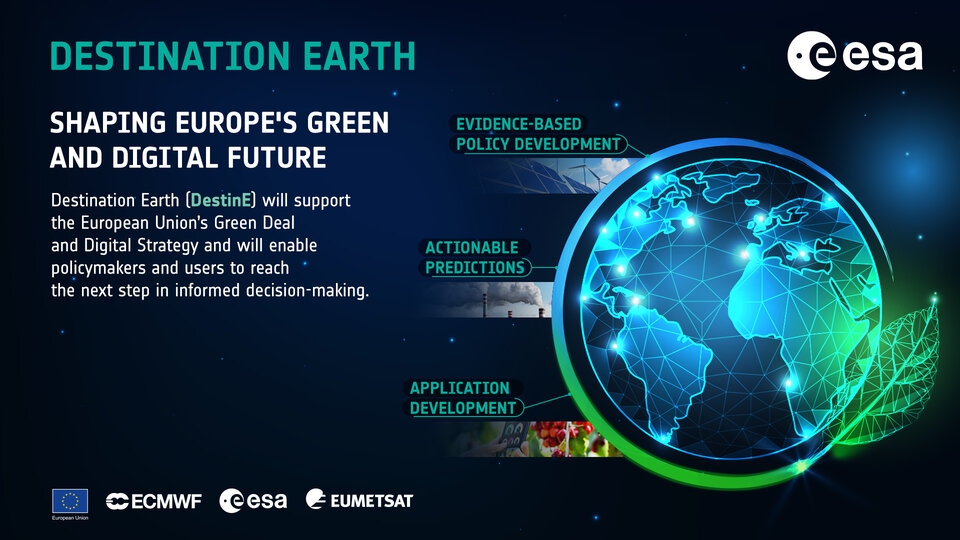Published on 14 December 2023
The second phase of the European Union’s Destination Earth initiative has been approved at ESA Council. Destination Earth, also known as DestinE, will build digital models of Earth allowing greater insight into weather and climate dynamics and their impacts on society.
These digital twins – digital replicas of various aspects of Earth’s system – will provide us with highly accurate representation of the past, present and future changes of our world. The digital twins will be accessible through a user-friendly and secure cloud-based digital modelling and simulation platform that will be developed by ESA.
The models will help scientists, politicians and the general public to understand the complex interactions that environment and humans will play in shaping Earth’s future. It will also form the baseline for effective European adaptation strategies in support of the green transition, helping the EU reach its goal of becoming carbon neutral by 2050, and the implementation of the European Commission’s Green Deal and Digital Strategy.
Confirmed yesterday, ESA Council approved the Amendment of the Contribution Agreement between ESA and the European Commission. DestinE will enter its second phase in mid-June of 2024 and will evolve the DestinE system and ramp-up operations, with a focus on consolidation, maintenance and continuous evolution of the components of the DestinE system.

The European Commission is leading and coordinating the implementation efforts along with ESA, the European Centre for Medium-Range Weather Forecasts (ECMWF) and the European Organisation for the Exploitation of Meteorological Satellites (Eumetsat).
ESA is responsible for the DestinE Open Core Service Platform, a user-friendly and secure cloud-based digital modelling and open simulation platform that offers an entry point to DestinE data, services and applications. It will provide its users with access to evidence-based policy and decision-making supporting tools, applications, and services, based on an open, flexible, scalable and secure cloud-based architecture.
It will allow users to customise the platform, integrate their own data and develop their own applications.
The platform will rely on the most comprehensive and sophisticated space-based observation data, including data from ESA’s Earth Explorers, the Copernicus Sentinel series, the meteorological missions and additional Earth observation satellites.
Eumetsat is responsible for the implementation and operation of the data lake, where the Destination Earth data can be found and accessed, while ECMWF is responsible for the two initial digital twins driving extreme weather and climate adaptation modelling.
Source:
European Space Agency. (2023c, December 14). ESA forges ahead with Destination Earth. Observing the Earth.